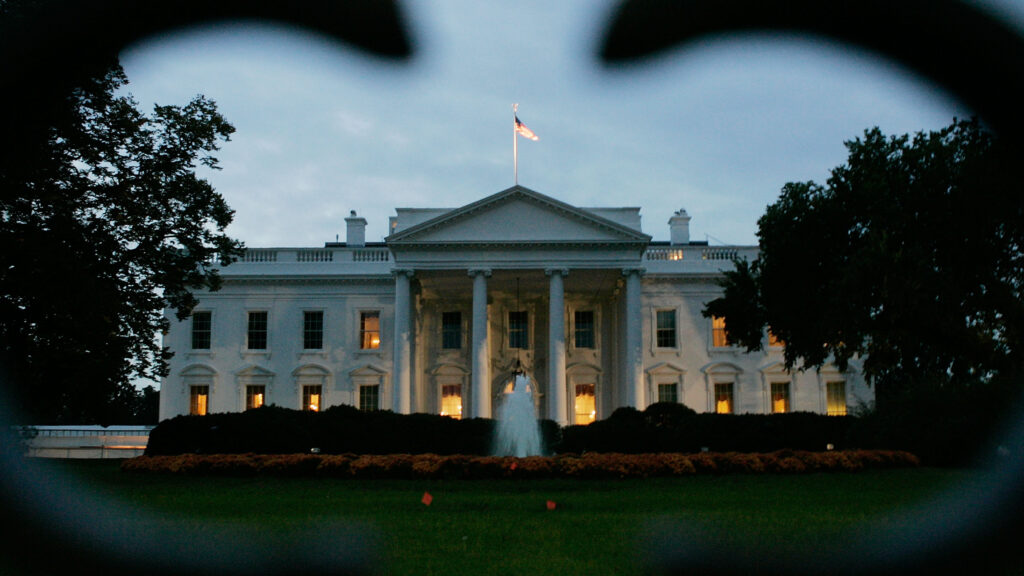You’re reading the web edition of D.C. Diagnosis, STAT’s twice-weekly newsletter about the politics and policy of health and medicine. Sign up here to receive it in your inbox on Tuesdays and Thursdays.
Inside the White House pharmacy
The little-known White House pharmacy is under a government watchdog’s microscope, and the picture isn’t pretty. In a searing new report, the inspector general recounts a doctor asking a pharmacy staffer to “hook up” someone with a controlled substance as a “parting gift.” Over-the-counter medicines were available in open bins, while some controlled medicines were dispensed without verifying patients’ identities, Brittany Trang reports.
advertisement
The report was prompted by 2018 complaints and only covers activity up to 2020 in the obscure pharmacy, technically run by defense department officials. And the inspector general concluded that lax prescribing, dispensing, and health care delivery could have wasted more than $750,000 in taxpayer dollars.
So what happens now? The OIG findings were reportedly delayed, making it hard to draw conclusions about the pharmacy’s current practices, experts tell Brittany. But there’s also lingering questions about who is running the operation and how to improve oversight. More here.
Biden’s upside from pharma’s drug pricing attacks
Drugmakers are doing anything they can to stop President Biden’s Medicare program from being able to negotiate prices for their products, including suing the government. Experts say their efforts might actually benefit Biden by reminding voters that he’s taking on pharma, John Wilkerson writes.
advertisement
The plan is popular with voters, as are the law’s price-inflation limits. There are also easier-to-explain elements like out-of-pocket cost caps for insulin and other medicines. And yet: Only 30% of people think Biden has done anything on drug prices.
These lawsuits, nine at least, could change all that. Judges will start weighing in on the cases in the coming months, potentially generating news stories that remind the public about Biden’s accomplishment just in time for the elections. More from John.
Q4 lobbying numbers come rolling in
Lobbyists had until yesterday to file their fourth-quarter spending disclosures, and eagle-eyed STAT reporters flagged some of the notable moves, from a group of doctors advocating for accessible psychedelic use getting into the advocacy game, to drugmakers whittling down their lobbying shops.
Some noteworthy numbers: Merck — which is now facing the specter of a Senate health committee subpoena — spent more than $2.2 million in the fourth quarter. Johnson & Johnson, also in the firing line for a subpoena, spent $1.6 million. That’s actually down from the$2.9 million from Merck in the same period of 2022, and the $2.7 million from J&J, spent in the months after Congress passed the law that would let Medicare negotiate drug prices.
Some other quick notes: One Hemp, a group calling on FDA regulation of CBD as a dietary supplement, hired a lobbying group. So did the Coalition for Healthcare Communication, which is pressing for drugmakers to share more off-label information.
FDA aims for year-end inspection overhaul
FDA officials hope to finish a sweeping reform of the agency’s approach to inspecting drugs, medical devices, and food product facilities by the end of this year — an overhaul of a huge swathe of agency oversight, John Wilkerson writes.
It’s expected to impact about 8,000 FDA employees, according to associate commissioner for regulatory affairs Michael Rogers. The Office of Regulatory Affairs, which will be called the Office of Inspections and Investigations under the proposed reorganization, will go from having about 5,100 full-time employees to 3,586 employees.
The timeline is aggressive. But longtime FDA official Janet Woodcock, who is spearheading the reorganization, says the end result will be faster work and better communication. More from John on how that works.
DeSantis makes DeExit (D-Exit)?
Ron DeSantis, one of the most prominent Republican governors bucking federal coronavirus policy and rolling out abortion and gender-affirming care limits, is officially out of the presidential race. The Florida governor late Sunday suspended his campaign after spending $150 million championing his credentials, including reversing state Covid-19 shutdowns and striking down mask mandates.
Back in Florida, DeSantis has a packed health care agenda before him. The FDA recently approved Florida’s plan to import drugs from Canada, though many obstacles remain before the program goes live. The state also leads in Medicaid disenrollments since the pandemic freeze ended, second only to Texas. And last summer, a federal judge struck down his ban on puberty blockers for teens.
DeSantis endorsed Trump during his exit, but he’s not hitting the trail for him just yet. The former president (who coined the nickname Ron DeSanctimonius) held a New Hampshire rally last night with other dropouts Sen. Tim Scott, (R-S.C.), North Dakota Gov. Doug Burgum, and Vivek Ramaswamy by his side.
Marching in has its skeptics — and supporters
Biden’s push for the NIH to license patents for certain pricey or unavailable pharmaceuticals to other drugmakers has experts and drug pricing advocates split. Some, of course, maintain that using never-before-deployed march-in rights can help lower costs for pricey medicines. Yet the idea has alarmed the drug industry, which argues it may rob companies of revenue and, fundamentally, intellectual property rights, Ed Silverman writes.
The backdrop to this debate is the ongoing national angst over the cost of prescription drugs, which remains a pocketbook issue for many Americans. Despite various attempts to tackle the problem — such as enacting a new law that allows Medicare to negotiate prices for a select number of medicines — the Biden administration and lawmakers remain under pressure to find still more solutions. More from Ed.
What we’re reading
Why many more people are lining up for a flu shot than a Covid vaccine, STAT
Biden leans into abortion, contraception as 2024 campaign strategy takes shape, Politico
Feds bar Theranos founder Elizabeth Holmes from government health programs, STAT
Federal Lawmakers Take First Steps Toward Oversight of $50 Billion in Opioid Settlements, KFF Health News

